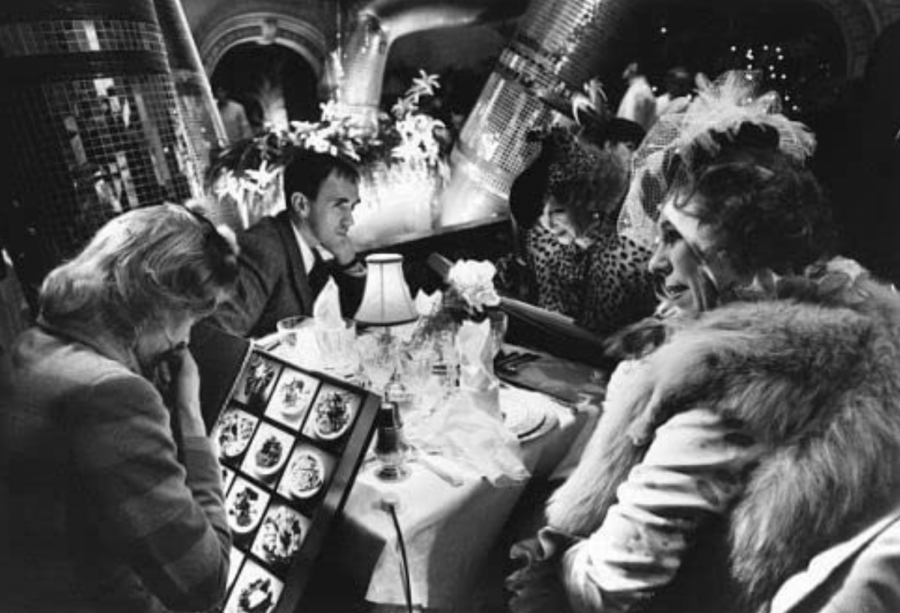Hidden Gem: ‘Brazil’ (1985)
Jonathan Pryce, Katherine Helmond, Barbara Hicks, and Kathryn Pogson star in the film “Brazil”. the movie was released on Dec. 18, 1985.
Jun 1, 2021
British writer and director Terry Gilliam was the only American-born member of the English comedy group Monty Python. When he first joined the group, he contributed much of the group’s inventive and, at times, bizarre animation. By 1975, when the group evolved from their cult television series into feature films, Gilliam became their director with Terry Jones in “Monty Python and the Holy Grail.”
But Gilliam’s masterwork would not be realized until another decade later when he collaborated with playwright Tom Stoppard and screenwriter Charles McKeown to create one of the funniest dystopian comedic satires, “Brazil.” This outstanding comedy, part science fiction tale, takes on the themes of George Orwell’s “1984” and concerns a low-level bureaucratic clerk named Sam Lowery whose only escape from the daily grind in the Ministry of Information is the fantastic flights of his imagination – where he rebels against the system as a winged avenger and falls in ideal love with a sweet young woman named Jill Layton.
Lowry’s daily existence consists of continually collecting, shuffling and filing endless amounts of meaningless papers and information while saving his boss, Mr. Kurtzmann (Ian Holm), from endless blunders and avoiding his demanding mother, Ida, who believes she’s forever in need of more plastic surgeries. Meanwhile, there is a general sense of uneasiness in society as a 13-year rage of terrorist bombings threatens everyday peace.
Real serious problems occur for Lowry when his air conditioning duct goes afoul. His call for help is intercepted by the outlaw independent heating engineer and freelance subversive Harry Tuttle (Robert DeNiro). While on assignment in the community slums, Lowry encounters the woman of his dreams, Jill (Kim Greist), and now his life has found significant meaning. Tuttle and Jill inspire him to ignore his state duties, even as he’s promoted to the Informational Retrieval section. He becomes an enemy of the state but follows his heart’s desires.
The gloomy, wild and imaginative aspects of Lowry’s reality and dream worlds are brought to wonderfully humorous fruition by Art Director Norman Garwood and Set Decorator Maggie Gray, who both received much-deserved Oscar nominations. Many of the film’s gloomy, shadowy sets and gothic buildings contain endless snake-like heating ducts that seem to serve no practical purpose. Gilliam moves his camera with sweeping long tracking shots, lighting most scenes with low-key noir visual style.
Get The Daily Illini in your inbox!
The film’s always imaginative, Oscar-nominated screenplay blends ironic, dark humor, some overt silliness and some serious satire about human liberty and freedom. Various iconic party slogans don the walls of ministry buildings with phrases proclaiming, “Suspicion Breads Confidence!” and ominous statues are bannered with “the Truth shall Make you Free.” Gilliam even makes effective visual tributes of the classic films like Fritz Lang’s “Metropolis,” Sergei Eisenstein’s “Battleship Potemkin” and Ridley Scott’s more recent “Blade Runner.”
The key to the movie’s passion is the outstanding leading performance by Jonathan Pryce, who, although an accomplished stage actor, was relatively new to films in the 1980s. Younger filmgoers will recognize him as Prince Phillip in “The Crown” or as Governor Weatherby Swann in “Pirates of the Caribbean” or Bond villain Elliot Carver in “Tomorrow Never Dies.” As the eccentric Sam Lowry, Pryce’s mix of dry British wit and starry-eyed romantic idealism makes him an ideal protagonist.
Supporting actors – like Katherine Helmond as Lowry’s kooky mother; fellow Monty Pythoner Michael Palin as old friend and party regular Jack Lint; and Bob Hoskins as loudmouthed Central Services repairman, Mr. Spoor – all add many delightful moments of laughter and fun.
And what does this have to do with the country Brazil, you might wonder? Almost nothing, though the 1930s rumba tune is repeated throughout the film. Its lyrics tell of a carefree and joyful lifestyle – contrasting ironically to the gloomy existence of this nameless 20th century society.
Los Angeles Times film columnist Jack Mathews’ 1987 book “The Battle of Brazil” detailed the production struggles and Gilliam’s determination to realize this work, calling “Brazil” a “masterpiece of modern social satire.” Over 35 years later, the film is still packed with relevance.






